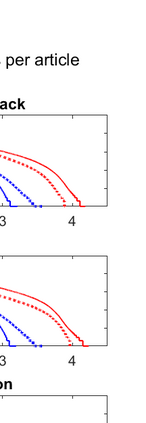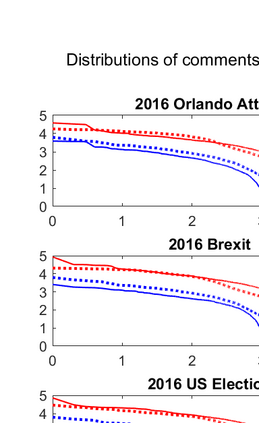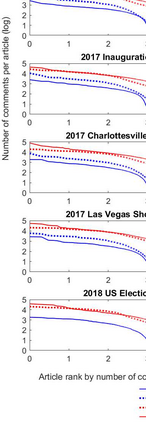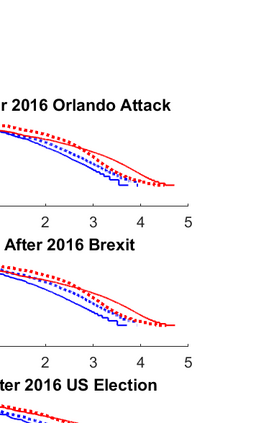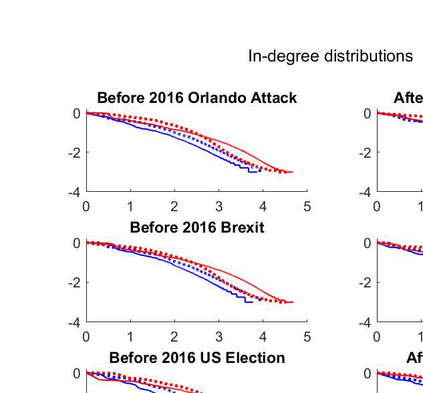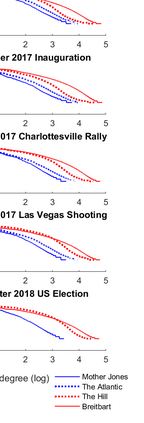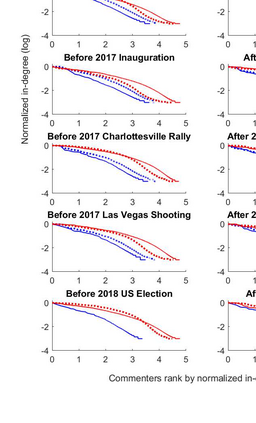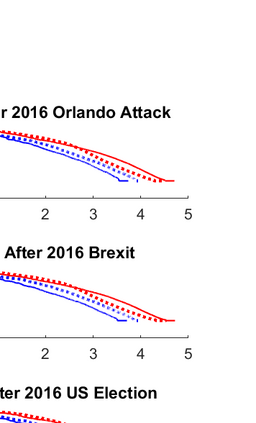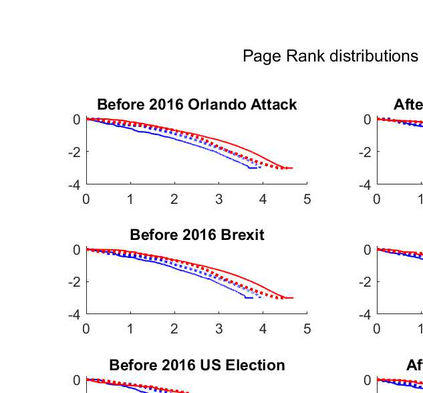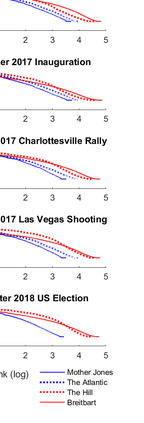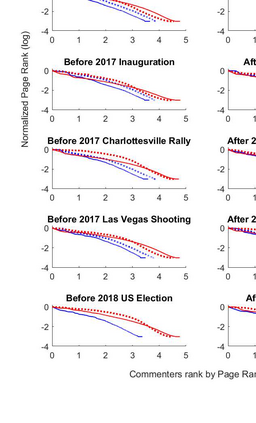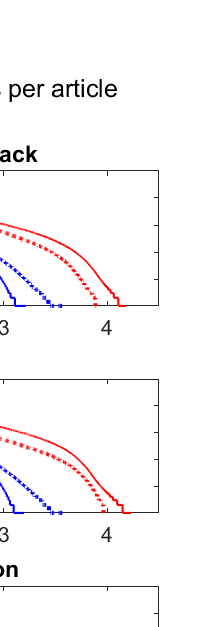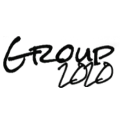Collectives adapt their network structure to the challenges they face. It has been hypothesized that collectives experiencing a real or imagined threat from an outgroup tend to consolidate behind a few influential group members, and that network structures in which a few members have a very strong influence are more likely in politically extreme groups. These hypotheses have not been tested in large-scale real-world settings. We reconstruct networks of tens of thousands of commenters participating in comment sections of high-profile U.S. political news websites spanning the political spectrum from left to right, including Mother Jones, The Atlantic, The Hill, and Breitbart. We investigate the relationship between different indices of inequality of influence in commenters' networks and perceived group threat associated with significant societal events, from elections and political rallies to mass shootings. Our findings support the hypotheses that groups facing a real or imagined outgroup threat and groups that are more politically extreme are more likely to include disproportionately influential commenters. These results provide an extensive real-world test of theoretical accounts of collective adaptation to outgroup threats.
翻译:集体组织调整其网络结构以适应他们所面临的挑战。人们已经假设,经历来自一个集团外集团的真正或想象的威胁的集体组织往往会集中在少数有影响力的集团成员背后,而少数成员具有非常强大影响力的网络结构在政治极端集团中更有可能出现。这些假设没有在大规模现实世界环境中进行测试。我们重建了成千上万名评论者组成的网络,他们参与美国高知名度政治新闻网站从左到右的评议部分,包括琼斯母亲、大西洋、希尔和布里特巴特。我们调查了评论家网络中影响不平等的不同指数和与重大社会事件、从选举和政治集会到大规模射击等有关的已知群体威胁之间的关系。我们的调查结果支持了这样的假设,即那些面临真实或想象的集团外威胁的团体和政治上更为极端的团体更有可能包括影响力过大的评论者。这些结果为集体适应集团威胁的理论描述提供了广泛的真实世界测试。

